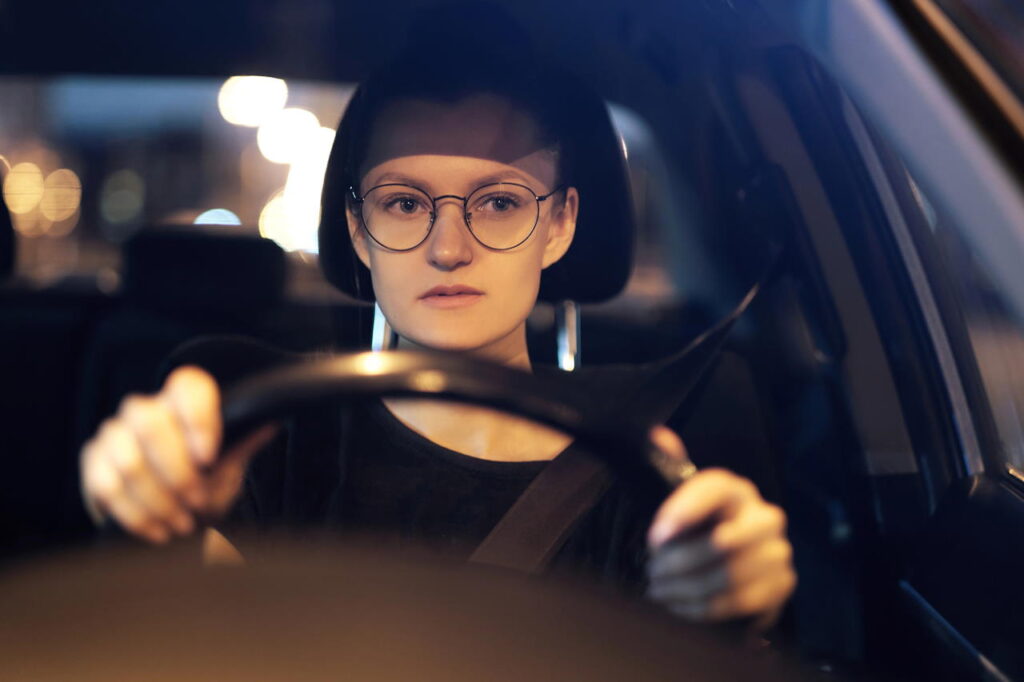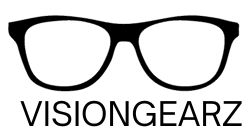Don't miss our holiday offer - up to 50% OFF!
Are Driving Glasses Really Helpful at Night?

Driving at night can be a challenging and stressful experience, particularly for those who struggle with reduced vision in low-light conditions. Night driving glasses are marketed as a solution to improve visibility and reduce glare from oncoming headlights. But do these glasses really work, or are they just another gimmick? In this article, we will explore the pros and cons of night driving glasses, their effectiveness, and some practical tips to help you see better while driving at night.
The Need for Night Driving Glasses
Night driving glasses are typically yellow-tinted and designed to enhance contrast and reduce glare from headlights and streetlights. They often feature an anti-reflective coating and, in some cases, polarized lenses. These glasses do not require a prescription and are marketed to help drivers who have difficulty seeing at night due to glare or low-light conditions.
Why Seeing at Night Can Be Difficult
As we age, our ability to see in low-light conditions can decline. By the age of 50, you may need twice as much light to see as well as you did when you were 30. Various medical conditions can further impair night vision:
- Nyctalopia (Night Blindness): This condition makes it harder to see in low light. It can be a symptom of other medical issues.
- Myopia (Nearsightedness): Difficulty seeing distant objects, which can be worse at night.
- Glaucoma: Reduces peripheral vision and can make night vision more challenging.
- Cataracts: Cloudy lenses that affect vision both day and night.
- Vitamin A Deficiency: Essential for good vision, particularly in low light.
- Retinitis Pigmentosa: A rare genetic disorder that reduces night and peripheral vision.

Can Night Driving Glasses Help?
The effectiveness of night driving glasses is a topic of debate. While the yellow tint is intended to reduce glare and improve contrast, some experts believe these glasses may actually hinder night vision by reducing the overall amount of light reaching the eyes. This reduction can make it more difficult to see in already low-light conditions.
A 2019 study found that people wearing night driving glasses had a harder time seeing pedestrians in their path compared to those not wearing them. Participants wearing the glasses took up to 1.5 seconds longer to notice pedestrians, raising concerns about the safety of using these glasses for night driving.
The Pros and Cons of Night Driving Glasses
Pros:
- Reduced Glare: The yellow tint can help reduce the glare from oncoming headlights and streetlights.
- Enhanced Contrast: The tint can improve contrast, making it easier to distinguish objects on the road.
- Affordability: Night driving glasses are generally inexpensive and easily accessible.
Cons:
- Reduced Light: The tint can limit the amount of light reaching your eyes, potentially worsening visibility.
- Questionable Effectiveness: Some studies and experts suggest that these glasses may not significantly improve night vision.
- False Sense of Security: Relying on night driving glasses might give drivers a false sense of confidence, potentially leading to unsafe driving practices.
Top 5 Popular Night Driving Glasses
If you decide to give night driving glasses a try, here are some popular brands and models that have received favorable reviews:
- Blupond Night Driving Glasses: Known for their anti-glare lenses and durable frames, Blupond glasses are a popular choice among night drivers.
- Polarspex Polarized Night Driving Glasses: These glasses feature polarized lenses that help reduce glare and enhance contrast, making them a favorite for many.
- Clear Night Original Night Driving Glasses: Affordable and effective, Clear Night glasses are praised for their comfort and performance.
- Optix 55 Night Vision Glasses: With a sleek design and yellow-tinted lenses, Optix 55 glasses are designed to improve night-time visibility and reduce eye strain.
- SOXICK HD Night Driving Glasses: These high-definition glasses claim to offer superior clarity and glare reduction, making night driving safer and more comfortable.
The Verdict on Night Driving Glasses
So, do night driving glasses work? The answer isn’t straightforward. While they may provide some benefits, especially in reducing glare and improving contrast, they are not a one-size-fits-all solution. Their effectiveness can vary based on individual sensitivity to light and driving conditions. For some, they might offer significant relief, while for others, they may offer little to no improvement.
If you’re struggling with night-time driving, it might be worth trying a pair to see if they work for you. However, it’s crucial to manage your expectations and be aware that they might not be a magic fix. Consulting with an eye care professional can also help you find the best solution tailored to your needs, whether it’s night driving glasses or other vision aids.
Ultimately, the best glasses for night driving are those that make you feel safer and more confident behind the wheel. Whether through reducing glare or simply providing psychological comfort, night driving glasses can be a helpful tool for many drivers. However, like any tool, their effectiveness will vary from person to person.
Stay safe, drive carefully, and make sure your vision is always at its best, no matter the time of day or night.
